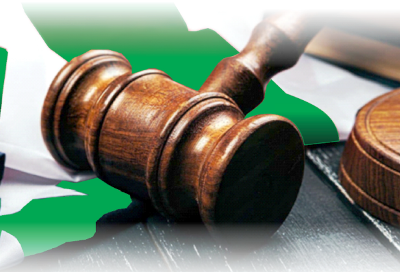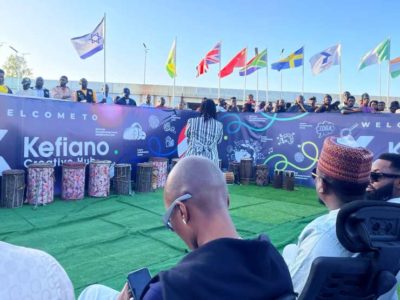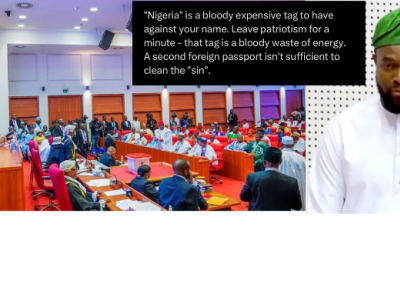Aimé Fernand David Césaire, Francophone and French poet, from Martinique, is not quite known here. But the Negritude poet indented memorable verses more than half a century ago lamenting the evil of racism in ‘the whiteman is a tiger at my throat.’ Who would have thought that those passionate lines would find meaning in the lamentation of Nigerian GSM subscribers?
Alas! Even the Nigeria Communications Commission (NCC) has come to realise that it would have to insist on minimum service quality; demand that consumers get a good bargain; and becomes less accommodating to the timeless excuses of the inherent strictures in the environment as being responsible for the poor quality of services. Over time, the regulator has imposed penalties on operators who deliver shoddy services in the belief that good service is an abomination in Nigeria.
Are GSM subscribers getting the best of services? They are not! They are being daily ripped up by operators who would rather celebrate new services, new coverage arrears and new tariffs than celebrate good services inside a market where network glitches are as frequent as news of corruption from Africa.
A typical Nigerian GSM subscriber has a minimum of three GSM handsets connected to three networks. The reason is not because Nigerians are phone freaks but because it is in their best interest to have all three networks blinking in their hands to improve chances of connectivity.
Call drops are frequent. Call failures are equally common. And the charges, they hit the roof all the time in a manner that seems to suggest that operators resent their own subscribers and would only tolerate them as long as they pay for the services. Forget that in saner climates, many operators would simply have been locked up for charging tariff on ‘no service.’
In the last five years, the market has been inundated with excuses on why good service is not practicable.
Operators argue that the Nigeria business climate remain an under-infrastructure one with recurrent blackouts and absence of telecom backbone that would have ease connectivity. Call is expensive because operators have either had to build their own support infrastructures or practically ride on the back of expensive foreign satellite providers to link local calls.
In the decade or so that subscribers growth have jumped over 100 million, the Nigerian telecom market has proven to be an atomic success for the network owners.
“Every loss of the consumer is a gain for the operator as the consumer must pay for the failure of the network to perform well.”
Huge money has gone into building and huge money has equally come as profit on the investment. In fact, return on investment (RoI) has beaten all forecasts to make the Nigerian market one of the most rewarding; perhaps more or just equaling that of China. Ironically, it has also proven to be one of the most unfriendly market for consumers and about the worst in terms of what consumers get in relation to what they pay as tariffs.
Little wonder, the NCC had to declare 2017 as the Telecom Consumer Year to raise awareness on how to address consumers’ abuses by operators,
For every call drop, call failure, or poor termination, consumers get charged at a premium. In any of the awful week, a subscriber may only get N100 worth of call in a N500 recharge or a N200 worth of call, may be a little more, in a N1000 worth of units. In the best of link, the consumer would have to factor a loss of 20 per cent to 25 per cent on any unit recharge.
“The high budget on talk is not necessarily high because Nigerians talk a lot but because in talking, a good percentage of the talk minutes are wasted into the operators’ crypt. Subscribers pay for services they never enjoyed.”
Every loss of the consumer is a gain for the operator as the consumer must pay for the failure of the network to perform well. This has always been the case sufficiently strong enough, giving the environmental lapses, for the regulator to look the other way in the belief that things would improve over time. Well, things never did improve. They got worst. From the early days of less than 100, 000 talking Nigerians to more than 32 million active phone users, the regulator has watched a hapless market abused and cheated by rapacious operators that have long consigned consumer issues to secondary items.
The high budget on talk is not necessarily high because Nigerians talk a lot but because in talking, a good percentage of the talk minutes are wasted into the operators’ crypt. Subscribers pay for services they never enjoyed and they have no one to make a case for them. Imagine network operators as white supremacists and imagine Nigerian subscribers as poor ‘telecom slaves,’ would you have any verse less than Cesaire’s lamentation to express the shame and tragedy of the exploiter and the exploited? Truly, Nigerian GSM operators are tigers at subscribers’ throats. Only the regulator cano tame the tigers.Thankfully, the NCC knows.
First published in Matters eRising, The Nation Newspaper 2007-05-14. http://www.thenationonlineng.net/archive2/tblnews_Detail.php?id=19127































